First published on Forbes, 19/04/22
One in five employees who left their job during the Great Resignation regrets it. Is it because they quit in haste and failed to do the proper due diligence? Or could it be that they were oversold the role during the hiring process? Both are possible, but a more likely explanation is that the greener grass they were hoping for doesn’t exist, and the ideal of work many developed during the pandemic isn’t a reality.
The End of Work As We Know It
After two years of crisis and working from home, many are finding it hard to reacclimatise as Covid restrictions ease and the world opens up again. People’s attitudes towards work and what they expect from their jobs have changed irrevocably. They’ve become accustomed to a new ‘normal’ where quality of life takes precedence. Except this isn’t the new normal.
That’s not to say that we’ve gone back to the way things were before. On the contrary, the pandemic has left a positive legacy and made work more ‘human’. Flexible working has gained widespread acceptance. There’s a new openness around mental health and a new recognition of employee worth, all of which bodes well for the future. However, arguably, the pandemic has also led to unrealistic expectations that there’s always something better – a more fulfilling role, a higher salary, greater flexibility – which has left employees and jobseekers wanting more.
Jobseeker Demands
It is understandable that people should aspire to a role that is rewarding, well-paid and flexible. However, sometimes jobseekers’ expectations are at odds with employers’ requirements. More and more candidates are limiting their search to fully remote jobs. Even applicants for traditional client-facing roles are requesting to work from home full-time, which reduces the opportunities available to them. Some people have moved out of the city during the pandemic and expect a higher salary for commuting in. And even then, they are only prepared to travel to the office a few times a week. They think work should fit around the new lives and new routines they’ve carved out for themselves during the pandemic, but that isn’t always possible. With such high expectations, it is no wonder the reality doesn’t measure up.
Realignment
Candidates often fall into the trap of thinking that, in the current market, their every wish is their employer’s command. But as much as jobseekers have the upper hand, there needs to be some recognition of the employer’s position and the realities of work.
There’s no denying that employers need to work harder than ever to attract and retain top talent. That means offering a competitive compensation package with flexible working as standard. If they don’t, they’ll only lose out. However, these flexible working options should reflect what’s best for the business, not only the employee.
Clear Expectations
Problems are most likely to arise when jobseekers expect one thing and then experience another. That’s why hiring managers should be explicit from the outset. What does the job entail, and what does flexible working look like day-to-day? The company policy might stipulate up to three days of working from home per week, but is this common practice? Or is it frowned upon if people follow the guidelines to the letter?
Employers often expect new hires to spend more time in the office than usual during their first month for training purposes. Again, if this is the case, employers should articulate it in advance so that new joiners’ expectations align with their on-the-job experience.
A Two-Way Street
Whatever the cause of the regret or disappointment many job shifters are experiencing in the current market, honest, two-way communication can help prevent it from happening in the future. It is about employers being clear about their needs and employees being open about theirs and meeting in the middle. But it is going to take time. As ‘normal’ life resumes, the hope is that employees will find a better way of working that meets employers’ requirements while satisfying their desire for a healthier work-life balance and greater purpose. They adjusted during the pandemic, and they can do so again. And what a great result that will be.




